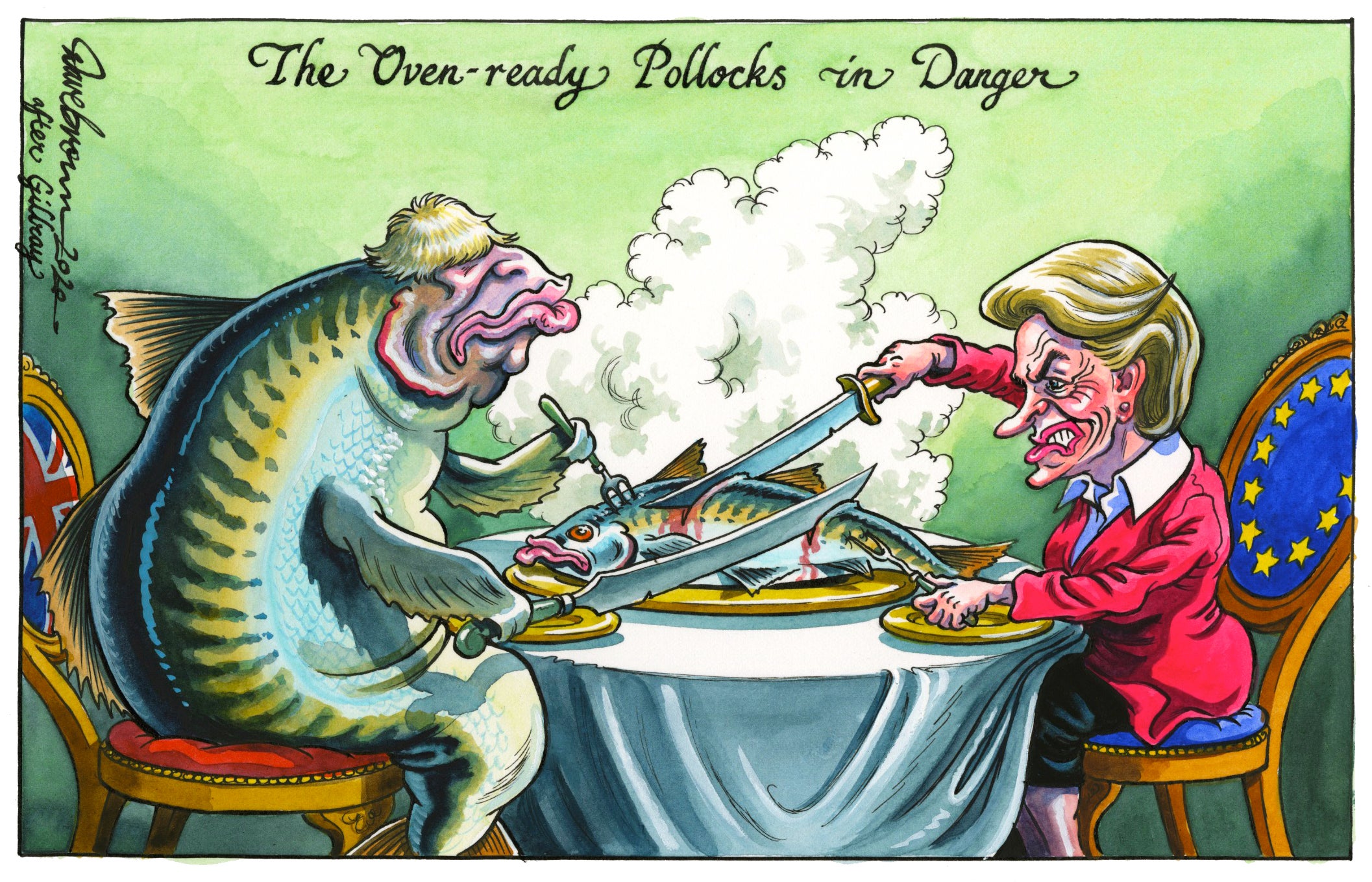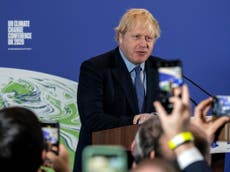A Brexit deal has still not been agreed – it would be sensible to extend the transition period
Editorial: There will be further discussions in the coming days but with everyone preoccupied by Covid, time and space are needed in order to reach an agreement

In the end, then, the dinner date from Hell went about as badly as might have been expected. Ursula von der Leyen, president of the European Commission, was born in Brussels, is the daughter of a European commissioner and is a devout federalist. Boris Johnson made a career out of ridiculing the EU and used Brexit to inveigle his way into No 10. It was hardly a match made in heaven.
Yet they didn’t quite break up; there will be more discussions, and there may even be a second dinner date. If things don’t work out over the next few days, though, the break-up could happen on Sunday.
Even so, as Mr Johnson has said, hope springs eternal. Talks will continue. Partly, this a matter of necessity, as both sides still have as much as ever to lose from a chaotic Brexit, though the British would come off proportionately worse. Both leaders are also keenly aware of the “optics”, and are reluctant to be the one seen as responsible for ending the discussions about the “Partnership Agreement”. Neither principal wishes to be blamed for what Mr Johnson called “a failure of statecraft”. There is a good deal of stage management in these final stages of Brexit.
Unsurprisingly, despite some renewed impetus and perhaps a slightly better mutual understanding, the same old choices and trade-offs remain. Indeed they are much the same as the ones endlessly pushed around since Theresa May and Jean-Claude Juncker were running the circus. As Ms Von der Leyen has tried to explain, and no doubt did again over dinner, there is a trade-off which links having access to the single market with agreement to comply with its standards and its rules – the “level playing field”.
The problem has always been that the entire point of Brexit is to allow the British to out-compete the EU by devising its own rules and regulations, its taxes and subsidies, investment priorities and financial structures, and much else besides. Mr Johnson is faced with choosing between the uncertain long-term benefits of such economic freedoms and the certain immediate and medium-term damage to the UK economy from losing parts of its biggest export market.
Mr Johnson is on record expressing his preference for having his cake and eating it. That was not on the menu in Brussels. Mr Johnson may now appeal to Emmanuel Macron and Angela Merkel to ease him out of his predicament – but politically and logically they cannot help. Ominously, the German chancellor served up a pre-prandial warning about the inviolable integrity of the European single market. Ms Von der Leyen served in Ms Merkel’s cabinet for 14 years, and is familiar with the views and influence of her old boss. She also knows that the US president-elect Joe Biden is on her side. Mr Johnson is isolated and negotiating from a position of weakness. He will fly back to Britain without even a piece of paper.
Given that fact, the still precarious state of the negotiations and the continuing pandemic, the sensible thing for all sides would be to extend the transition period for a further six months or so. Time and space are needed, and everyone concerned is still preoccupied with Covid. A longer delay could be dressed up in whatever euphemisms suit both sides. It might just mean that the famous can is merely kicked down the boulevard for a bit longer, but it would do no harm, and businesses would welcome it. To adapt a Churchillian quotation, jaw-jaw is better than trade war.



Join our commenting forum
Join thought-provoking conversations, follow other Independent readers and see their replies
Comments